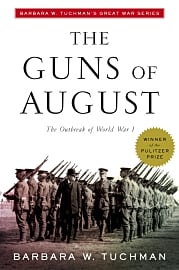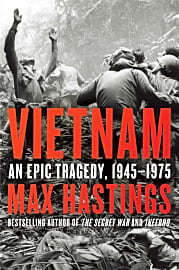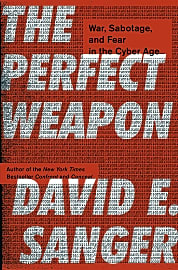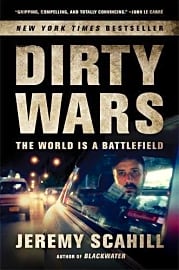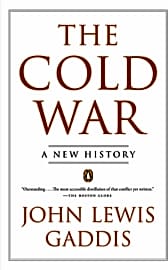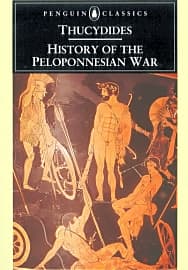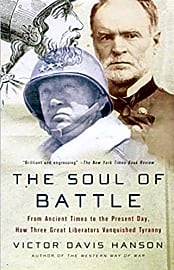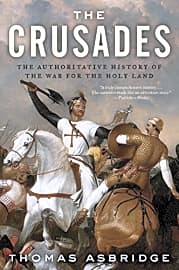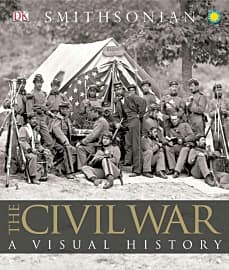The 10 Best War History Books

This wiki has been updated 39 times since it was first published in September of 2015. As the philosopher, essayist, and poet George Santayana said, "Those who cannot remember the past are condemned to repeat it." When it comes to the subject of armed conflicts, we would be wise to take heed. Our selection of war history books is fascinating, enlightening, and even entertaining, and will be equally of interest to students, historians, and those wishing to learn from days gone by. When users buy our independently chosen editorial recommendations, we may earn commissions to help fund the Wiki.
Editor's Notes
March 23, 2020:
What makes a good war book is somewhat subjective, but I believe it should be focused on a particular conflict and provide a significant amount of political backstory without getting so bogged down in the people and policies behind the scenes that the war itself seems to fade into the background. That's why we cut 1776 by David McCullough, as it was a bit too focused on the political moment and less so on the fight that allowed for it. We also sent packing A History of Warfare and The War That Forged a Nation, with the former leaving for its meandering quality and the latter for its redundancy — there are a lot of wars to choose from, and we already have a superior Civil War book on our list in The Civil War: A Visual History.
Of course, the face of war as we know it has been changing dramatically since WWII, first with the Cold War and Vietnam, and today in cyber and covert warfare, and in proxy battles between superpowers. That's why it was so important to add Dirty Wars: and The Perfect Weapon: to our list, as both examine the fluctuating landscape of war, from CIA black sites that defy the Geneva Conventions to government sponsored hacks into democratic elections.
On Reading On War
First, there is the survey-style of book that might focus on a number of battles related to one another by geography, chronology, or common attributes.
Few if any subjects garner the same level of interest as warfare. Battle draws out the most vivid emotions known to mankind — both the lowest savagery and most gallant heroics — and makes for undeniably compelling stories on the personal level. War also shapes the course of history in less time and with more profound results than any other human endeavor, with every great conflict forever changing the people, landscape, and destiny of all evenly remotely involved in the fighting. Warfare has been the catalyst for many of the greatest inventions, the inspiration for countless works of art, and the proving ground for some of history's most famous and influential figures.
It is little wonder, then, that so many thousands of books have been written about human beings in conflict with one another. Indeed some the very foundational books of human literature, such as Homer's Illiad, have at their center people engaged in epic warfare. From Sun Tzu's The Art of War, written more than 400 years before the Common Era, to Carl von Clausewitz's On War, written shortly after the Napoleonic Wars of the early 19th century, authors have sought to set down on paper their deepest insights into the nature of war and to help make sense of its place in life.
The modern reader has at his or her disposal a wealth of books on war history, theory, and tactics that ancient and classical scholars would be thrilled to see. Today, reading up on war can easily take the shape of deep scholarship or casual recreation, and few conflicts or notable soldiers have failed to receive at least some coverage in a book or two. In short, no matter how obscure and specific or broad and general your interest in subjects martial may be, you will readily find a war history book that suits your preferences.
Broadly speaking, there are three categories of war history book. First, there is the survey-style of book that might focus on a number of battles related to one another by geography, chronology, or common attributes. Second, there is the book (or series of books) about a given conflict — a definitive account of the battle of Agincourt or a study of the whole of the Boer War, for two examples. Finally, there is the biographical approach to military history, wherein an author focuses on a person (or a group) and tells the tale of a conflict through the lens of key players.
The newcomer to war history books may do best to start with the latter type of book, as a personal history can often make a relatively unknown topic more compelling and easier to penetrate. The casual military history enthusiast will enjoy picking at a book with a bit of information on lots of topics. The true scholar of warfare will be more than ready to delve deeply into a tome focused on a given battle or wider war, undaunted by detail and able to bring their own prior knowledge along as context.
War History Books for General Interest Reading
Even warfare, that most vivid, gripping subject, can prove dull when it is written of by an author who fails to create compelling prose, or when a book is in the hands of someone who simply lacks an innate interest in the topic. But as understanding certain aspects of war history can at time be critical — interest in and acumen for the subject notwithstanding — it's important to find books that make military history easily accessible.
The student plodding his way through an American history class and in desperate need of a resource to bolster his insipid textbook might wisely treat himself to a book packed with pictures that can help bring the Civil War to life, for example. A scholar trying to make sense the political climate of the post-9/11 world might be well-served by a book covering the decades of the Cold War that set the tenor for international relations in the current era. Looking for books that take a broad perspective on a major topic (the Civil War or Cold War, e.g.) can help provide context beyond the battlefield without the need for bogging down in details like troop movements and supply line issues.
And anyone who just needs to know a little more about a certain period of history can read a few pages on the major battles of the era for added context and clarity. One need not become a military historian to appreciate that military matters impact everything else about the politics and culture of a time and place.
The War History Book for Deeper Learning
Even the best-written account of a war or battle can only do so much to provide greater context for the events that directly contributed to the conflict, those that were affected by it in its own time, and of the ramifications left by the fighting. A deep understanding of and appreciation for military history writ large, therefore, requires years of reading and study to develop.
A deep understanding of and appreciation for military history writ large, therefore, requires years of reading and study to develop.
But few of us have the time to start our martial studies with the ancient writings of Thucydides, to read next the works of Livy, to eventually move on to William of Tyre, and so forth. Rather the scholar of war history with a realistic appreciation of how much free time and energy she really has would be wise to select a distinct period of history and then study the conflicts within it in chronological order.
For example, a person fascinated with World War I would do herself a great service by first reading up on the warfare of the 19th century. The wars of the post-Napoleonic era, including the Crimean War and the Franco-Prussian War, perhaps most notably, did so much to shape the course of European history in the 1800s that their impact on the war that would shape the 1900s cannot be denied.
Scholars of American military history should start not with the Revolutionary War, but rather with the Seven Years' War (a.k.a. the French and Indian War), as that conflict had direct and profound repercussions on the coming revolution. So too can the student of American Civil War learn much about the tactics used and the men who served in that wretched conflagration learn much from studying the Mexican American War that preceded it by less than two decades and that was a proving ground for many of its major players.


